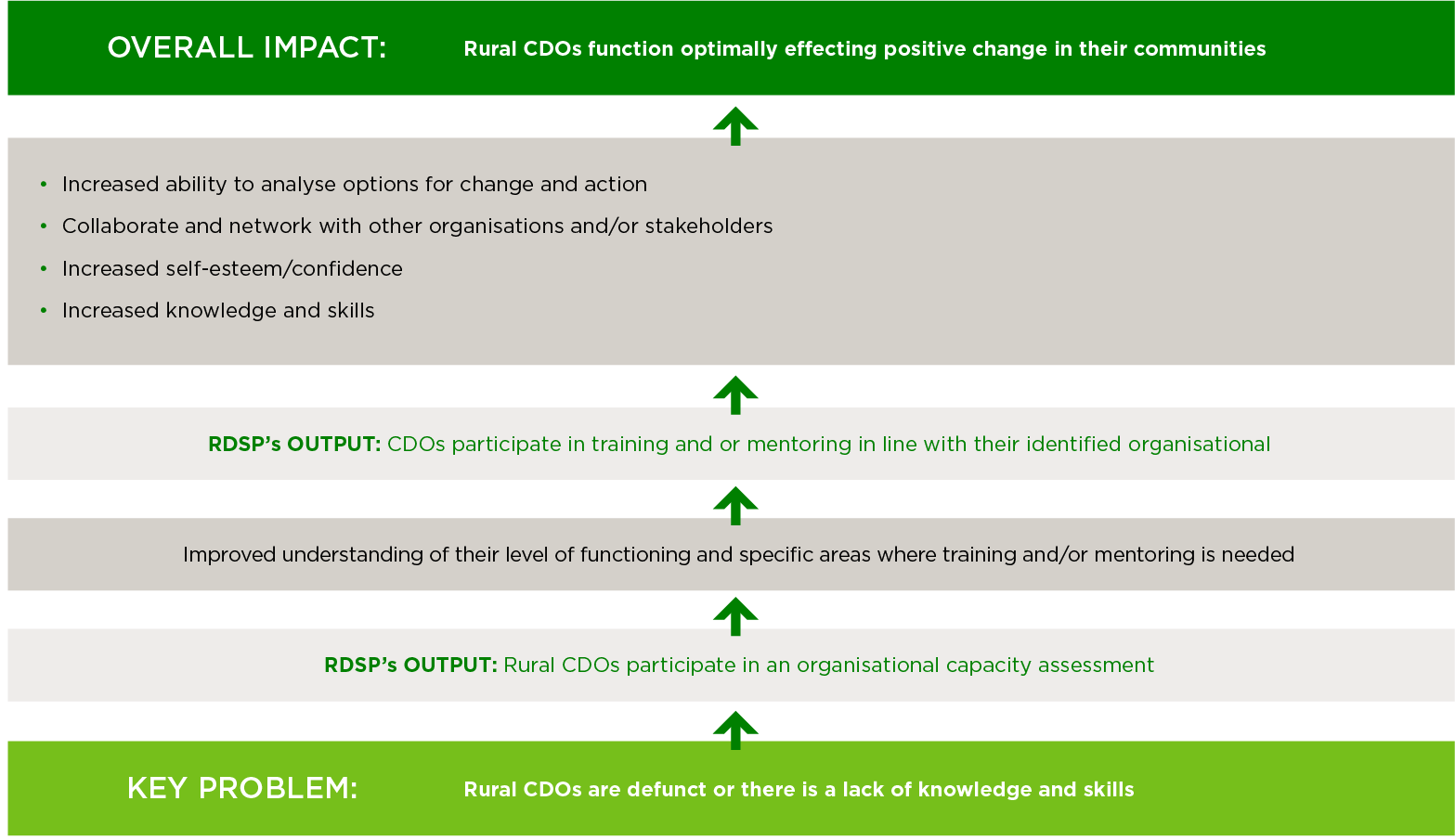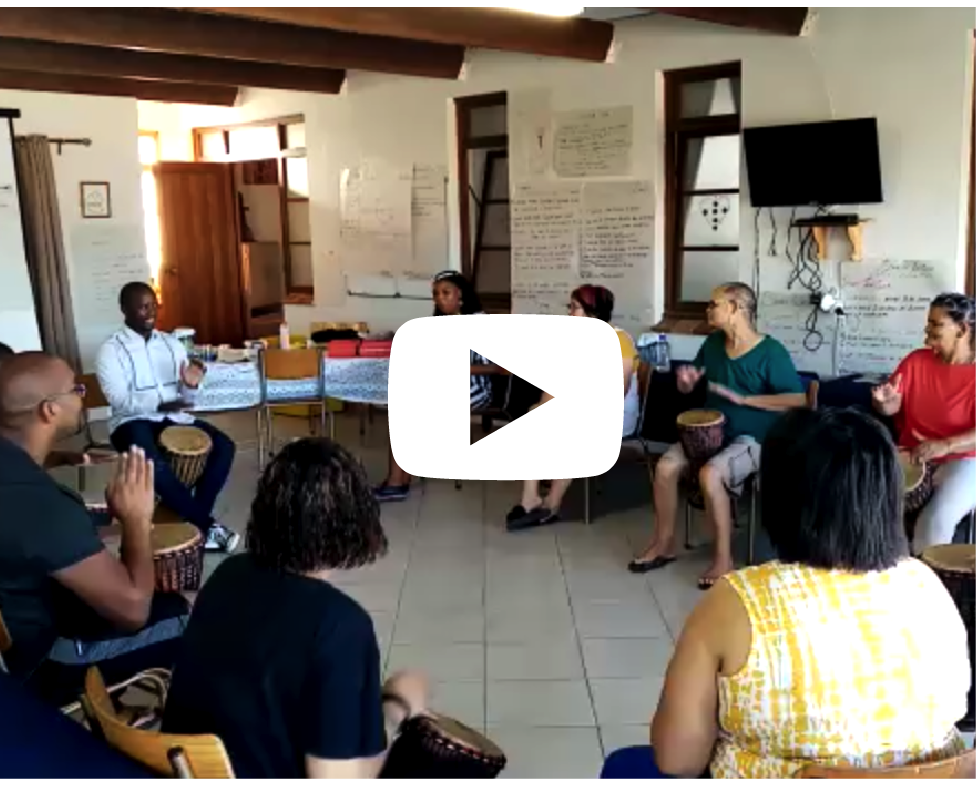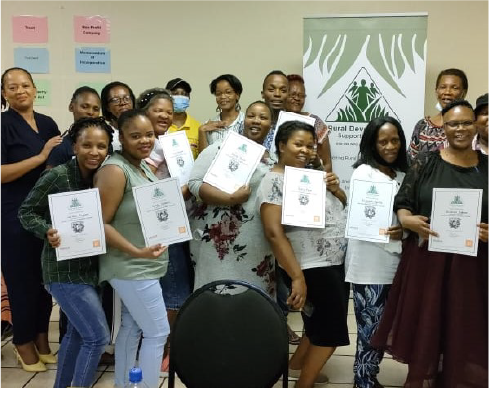Rural Organisation
Development Programme
Programme 1
Rural CDOs receiving individually designed training and mentoring from RDSP have increased organisational effectiveness enabling them to improve their impact in communities.
SUMMARY OF RDSP’s CAPACITY BUILDING SERVICES:
Training
LAYING THE FOUNDATION: ORGANISATIONAL GOVERNANCE & MANAGEMENT SKILLS
GOOD GOVERNANCE -NPO
Management and Compliance
- Understanding Different Types of Structures
- Key Compliance Areas for Non-Profit Organisations
- Roles and Responsibilities of Board Members
- Staff and Volunteer Management in NPOs
- Basic Conditions of Employment Act in NPOs
PLANNING, MONITORING & EVALUATION
- Theory of Change – defining & developing.
- Identifying Impact.
- Identifying activities and results.
- Identifying objectives.
- Setting indicators.
- Monitoring Systems.
FUND RAISING IN A DIGITAL AGE
- What is Fundraising
- How to analyse donors
- Foundations of Fundraising
- Budgeting
- Sources of funding
- Prospecting of donors
- Fundraising policy
FINANCIAL MANAGEMENT
- Budgeting & basic bookkeeping.
- Monitoring the budget.
- Financial statements.
- Financial policies.
- Financial management systems.
REACHING OUT: SKILLS FOR PROGRAMMES & PROJECTS
LEADERSHIP
- The Seven Habits of Highly Effective People.
- Certificate in Community Leadership.
- Refocus Camps/ Wilderness Therapy.
PUBLIC PARTICIPATION
- Democracy & the constitution.
- How does the government work?
- Public participation, particularly in local government structures.
- Running an advocacy campaign.
INCOME-GENERATION SKILLS
- Steps in planning a small business.
- Writing a business plan.
- Basic business functions.
PASSING ON THE KNOWLEDGE: TRAINING & FACILITATION SKILLS (on request)
PRESENTATION & TRAINING SKILLS
- Theory of Adult Education.
- Presentation Skills.
- How to facilitate training: styles, techniques & visual aids.
- Planning training sessions.
- Practise session.
FACILITATION & OD SKILLS
- Organisational Development Theory.
- How to prepare and facilitate OD processes.
- How to facilitate evaluation, planning and structuring processes.
- Practise session.
OD & Mentoring
- Following up on training attended.
- Testing the health of the organisation: structure; staff; management; finances; results & impact.
- Re-visiting the original vision and discussing any changes.
- Discussing how the vision is translated into an action plan with priority areas and a budget.
- Developing basic monitoring skills.
- Discussing current networking and collaboration activities and how these can be enhanced.
- Ensuring the following management systems are in place or can be developed: job descriptions, constitution and financial management systems.
- Sharing information on potential funders and discussing the fund raising strategy.
- Advising on specific programmes and activities.
- Checking on the progress of community support groups for GBV and/or substance abuse.
- Mentoring youth in life skills and preparing for the workplace.
- Mentoring youth in their role as change agents.
Rural Organisation Development Programme
THEORY OF CHANGE





